Talk to us. Not about us
The refugee crisis in Europe is a core topic in the teaching at European Studies, where students were recently given a unique opportunity to personalise and talk to some of the people who fled war and destruction in their native countries. Omnibus was also present when the five refugees participated in the “The Dream of Europe?” seminar.
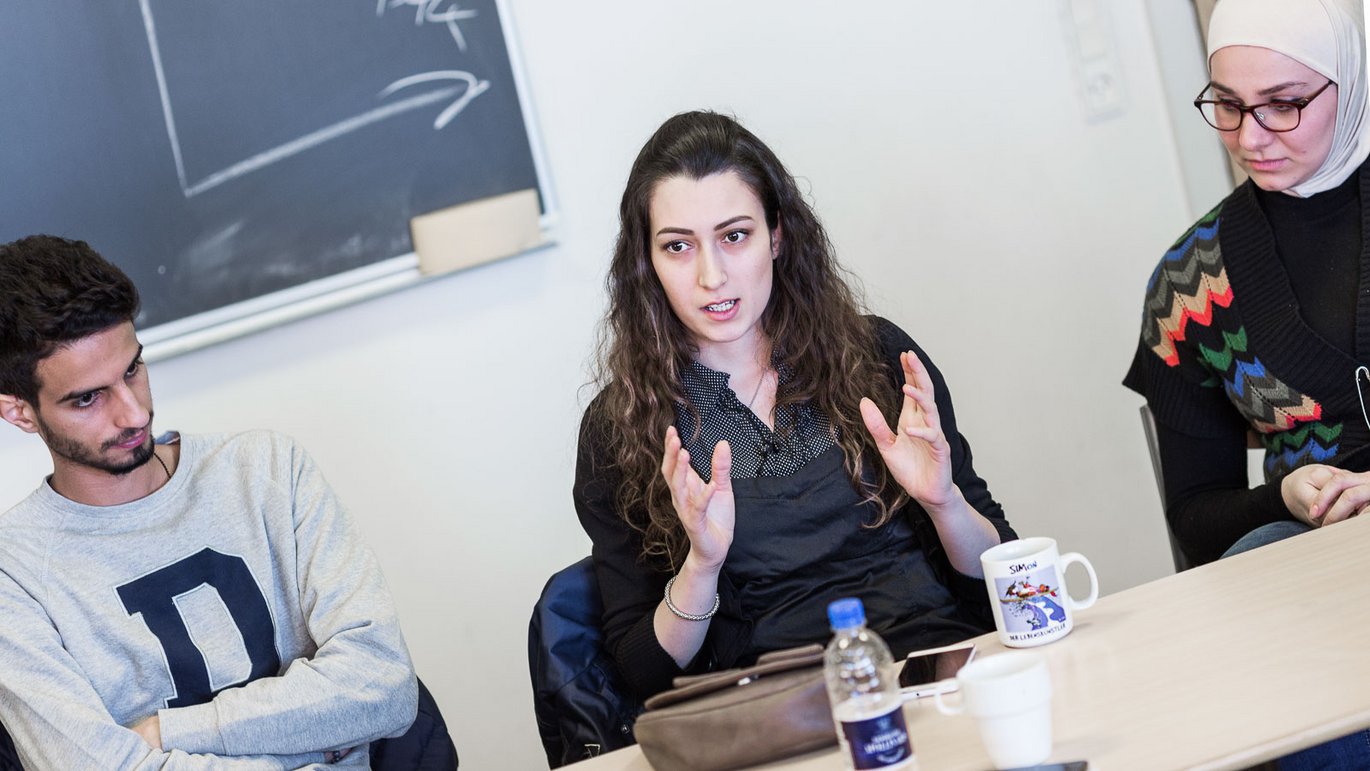
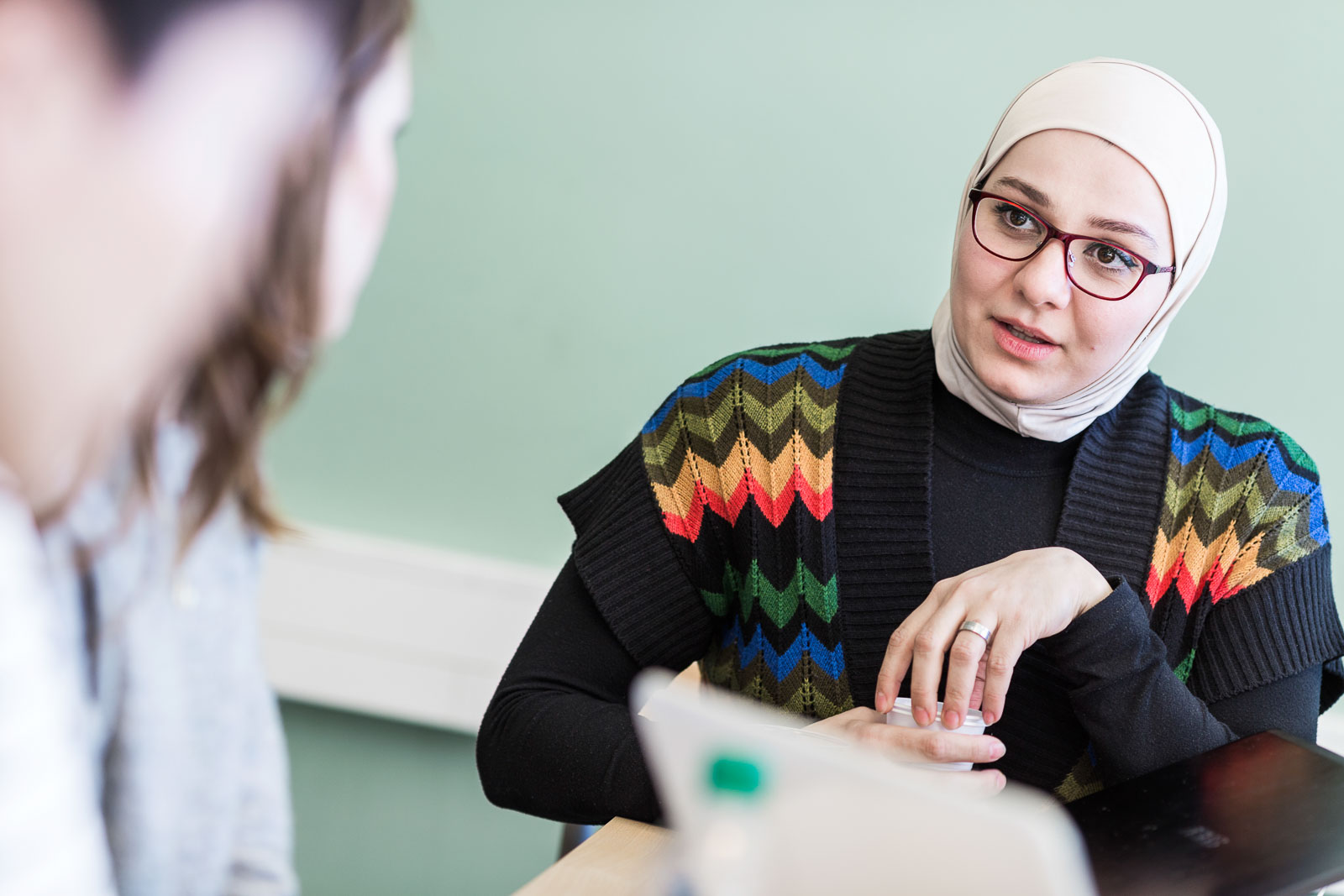
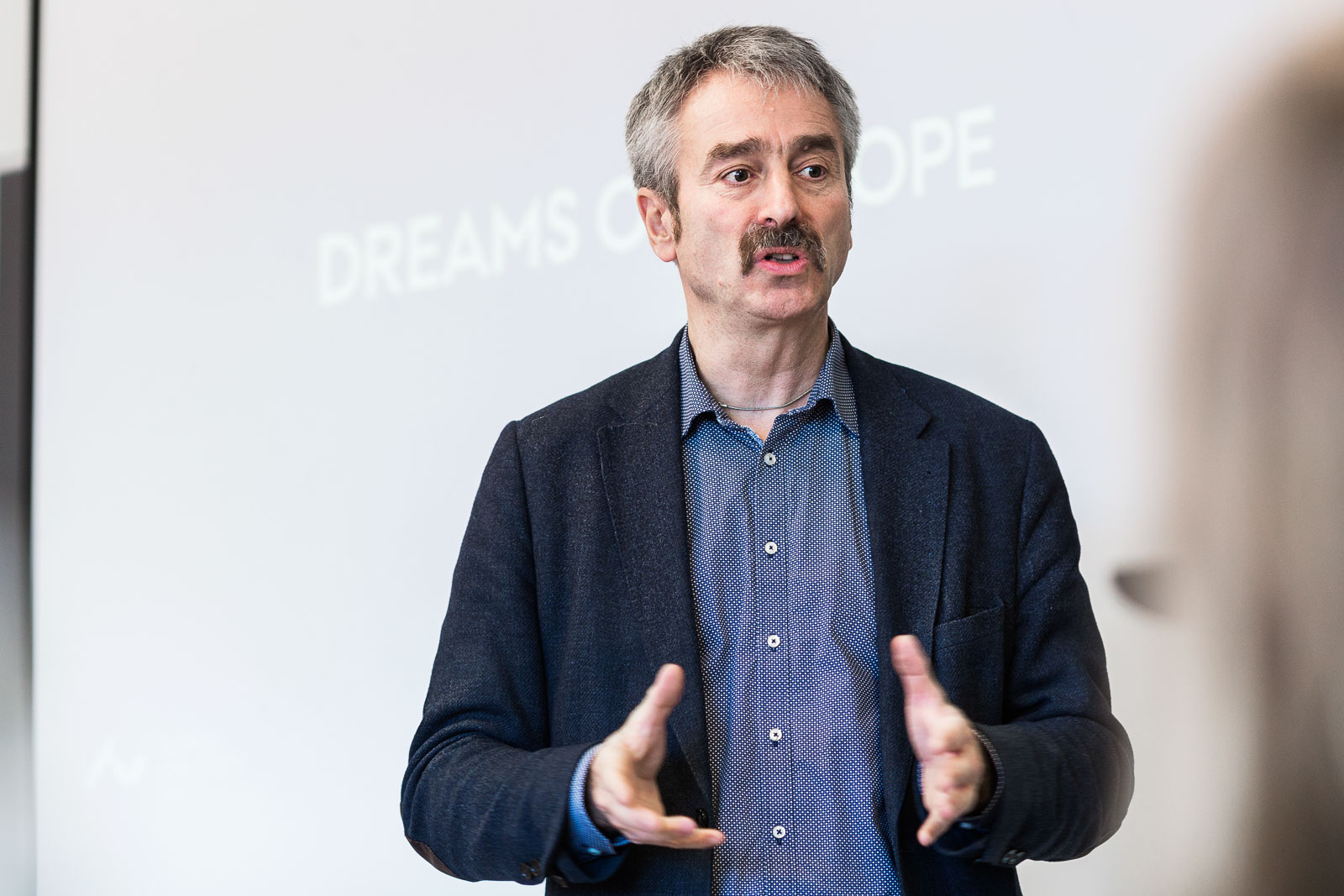
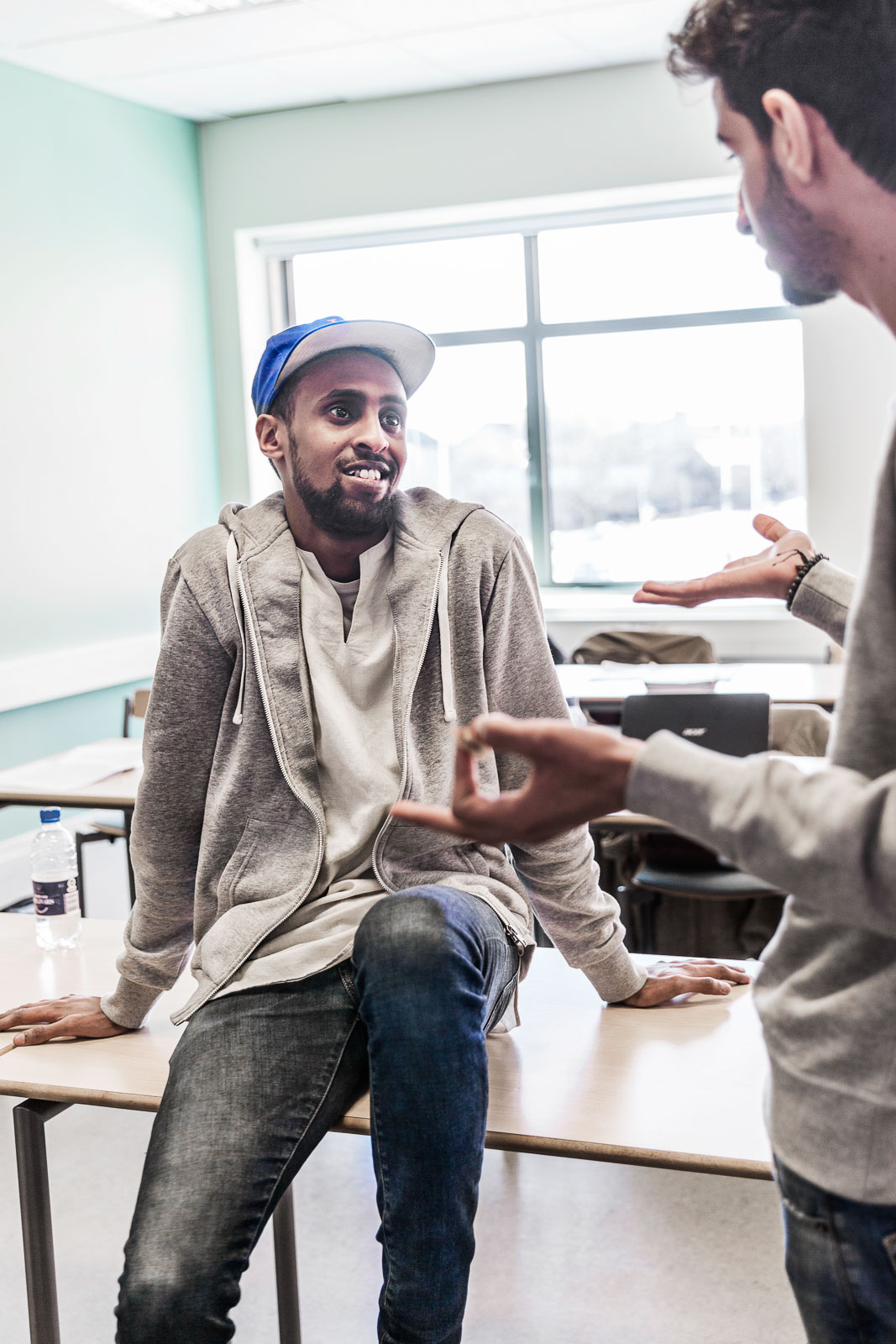
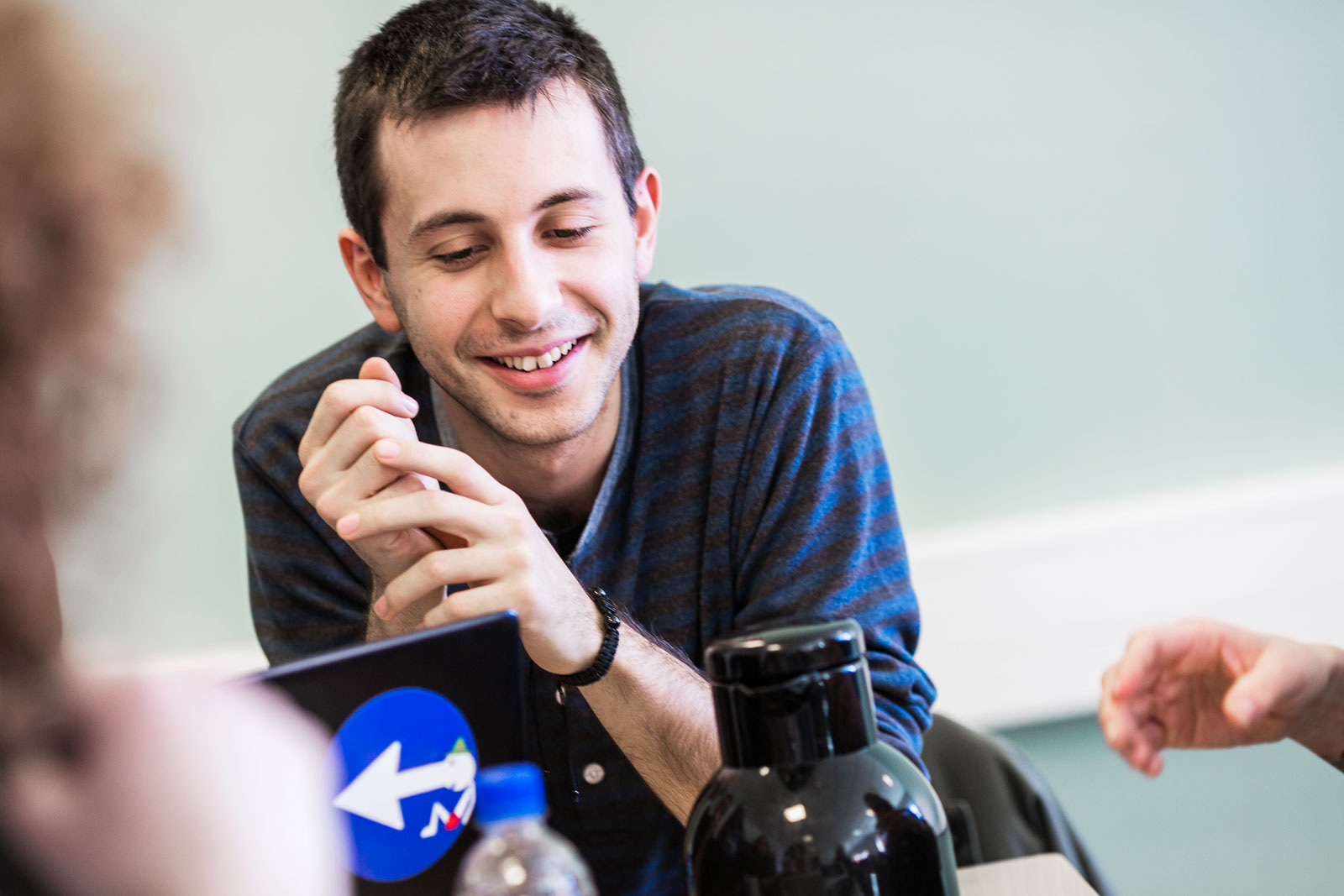
"Europe is entitled to protect its borders, but I also think it’s obliged to help those who need help. I’m not proud of the way I got here. With a false passport. But it was necessary to survive."
The words are spoken by 28-year-old Dima Karabash. Eighteen months ago she fled war-torn Syria together with her husband and two small sons aged eighteen months and four years. Just like thousands of other refugees, they travelled to Europe by boat to Greece, before continuing via Italy up through Europe. Dima Karabash and her family have been granted a five-year temporary residence permit in Denmark. On 1 April she participated together with four other young refugees in a seminar at European Studies at AU. Omnibus listened in as they described their flight to Europe and discussed possible solutions to the European refugee crisis with the students.
A voice we are not hearing
"Here at the department we work with how people see and think about Europe right now. When it came to the refugee crisis we thought that there was a voice we weren’t hearing. We hear the politicians and the pro-refugee groups, but what do the refugees themselves have to say? They have knowledge that we don’t have and we therefore wanted them to come and have a discussion with the students," explains Associate Professor Jan Ifversen, who arranged the seminar together with his fellow lecturers at European Studies.
According to Jan Ifversen, the idea behind having refugees involved in the teaching is to give the students the opportunity to actually personalise a group of people that they might otherwise only hear mentioned in newspapers and on television. To get closer to them, listen to them and to exchange knowledge with them. It is also clear that the students are very interested in discussing the situation when they are divided into smaller groups and get the chance to ask Dima Karabash and the other refugees questions about their experience of fleeing to and through Europe, as well as their ideas and dreams of Europe.
Neighbours do not say hello
"We live in a small house in Hasle (in the western part of Aarhus, ed.) and our neighbour doesn’t talk to us at all. That’s a very strange experience. At home out neighbour would call and ask if we were okay if she hadn’t seen us for a few days," says Dima Karabash to the small group of students sitting at the table with her.
"That’s very typically Danish," says student Zakaria Mohamed Hassan, while the other students nod together.
"I live in a place where there are many other students. People don’t say hello to each other there either," he explains.
Zakaria Mohamed Hassan was himself three-years-old when he and his family came to Denmark after fleeing Somalia. Even though he does not remember his life before coming to Denmark, he can still relate to many of the thoughts and experiences that Dima Karabash tells of. He grew up in Karup, a small town between Viborg and Herning in central Jutland. He quickly got to know Danes through institutions and various cultural activities. He passes the tip on to Dima Karabash.
Difficult to learn the language
Several of the refugees either live or have lived at Lyngbygård asylum centre in Djursland, where they have not had much contact with ethnic Danes, which makes it difficult to become part of Danish society.
"It took eight months before I saw Dane who didn’t work at the asylum centre. It’s difficult to learn the language when you don’t have the opportunity to use it and talk to people," says Khalil Hamdouna, who comes from Palestine.
Local solutions
According to official EU statistics compiled by Eurostat, more than 1.2 million people applied for asylum in one of the EU's 28 member countries last year. One of the items on the seminar agenda was the question of how institutions on different levels – EU, national and locally in the municipalities – should respond to the increasing number of refugees. Several of the refugees say that they wish the conflicts could be dealt with locally.
"Take care of the problems at home in Syria. Do that and you won’t see us here. We haven’t chosen to come here. We were forced to come because of the war. If the opportunity comes, I would definitely go back. I would go voluntarily. I’d even walk all the way home," says Dima Karabash.
Use the universities for integration
In relation to local integration efforts, the participants discuss the possibility of relocating refugees living in ghettos to other residential areas, a desire for a greater number of positive angles and stories in the media, and the opportunity of giving asylum seekers the chance to get an education and follow courses while their asylum case is being processed.
It is now more than six months since the universities in Denmark, led by the University of Copenhagen initially announced their desire to give refugees an opportunity to study for free on Danish study programmes as is already the case in Germany.
This type of scheme would require an amendment to Danish law, as refugees who do not have a residence permit must currently pay full tuition fees to take Danish study programmes. Even though the idea has never won broad political support, the underlying wish to let the universities play a more active role in the Danish integration effort has nonetheless not been forgotten. For example, in February professor with special responsibilities (MSO) in Information Studies at AU Peter Lauritsen wrote about the topic in an article in the Danish newspaper Politiken (in Danish only, ed.). Together with AU Associate Professor Sara Dybris McQuaid and Zachary Whyte, who is a part-time lecturer at Aalborg University, he suggested free courses and skills development courses for refugees and presented the idea of having a university extension programme for refugees.
At the seminar, the biggest wish expressed by the five guest participants was a wish to be included. To be heard.
"Talk to us. Not about us," says Dima Karabash.
Food for thought
After the seminar a number of students said that they had found being able to talk to the refugees valuable. In relation to their studies, they have been given an insight into how the theories they work with on a daily basis have an impact on the lives of real human beings. The visit also gave them food for thought on a personal level.
"It puts into perspective how privileged we are here in Denmark. And we don’t even realise," as one of the students at the seminar, Alex Grams, puts it.
Translated by Peter Lambourne
READ MORE: Bachelor student manning the barricades for refugees

